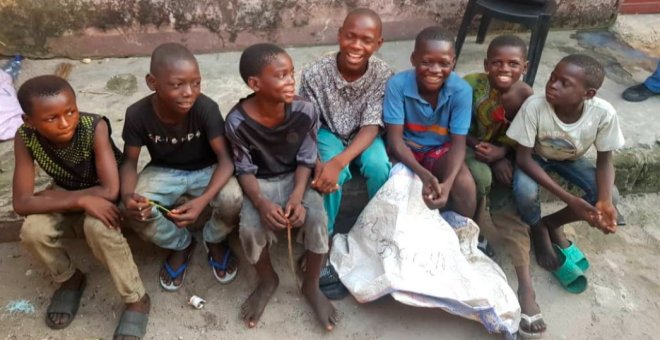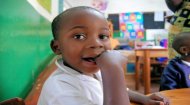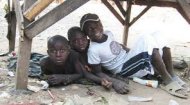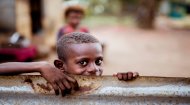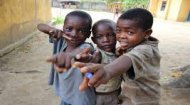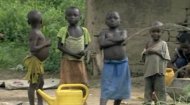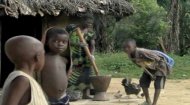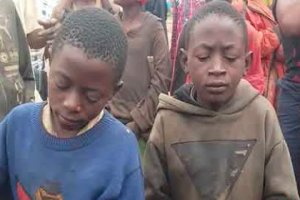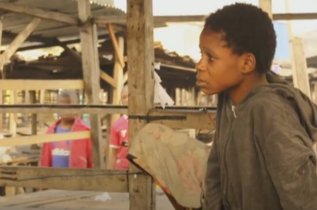|
|

|
DRC Street Children |
DRC Street Children |
DRC Street Children | DRC Street Children |
Explore
all about the Democratic Republic of Congo in a series of pictures, videos
and images.
More >
|

|
Many of these street children are trafficked for enforced labour and prostitution within the country itself as well as into neighbouring territories with much of this child trafficking undertaken by armed groups and even governmental forces within the country's unstable eastern provinces. When they are abducted no-one notices. No-one cares. No-one even knows they're missing. They are forgotten. UNICEF estimate that between 60,000 and 70,000 children live on the streets of Kinshasa, the capital city of the Democratic Republic of Congo, alone (this figure includes children who work the streets but return home each night). The actual numbers throughout the rest of the country are not known but some estimates put the number at around one quarter of a million. These numbers are hardly surprising when you consider that there are some five million orphans in the country, let alone those who have taken to the streets for other reasons. The situation is being so embedded that there are now second and third generation street children in the Democratic Republic of Congo especially in Kinshasa, Bukavu, Goma and Lubumbashi. These former street children are now hardened street adults ~ uneducated, outside of mainstream society and seeing no relevance in the rules of a society which abandoned them as children. Disturbingly some of the street children are often recruited by political parties to create disorder in public demonstrations in exchange for food and or money. With no one to advocate for them, security forces respond aggressively and there have been many reports of children being killed or seriously injured during these episodes. The statistics for girls are alarming. Often referred to as mayibobo, or tsheil, many girls start a life of prostitution at the age of twelve and where statistics are available, seven out of ten report they have been raped with one out of every three of these children already being a mother as a result of these incidents. It is widely acknowledged that there is neither the social understanding nor political will to address the issue which is becoming increasingly prevalent across sub-Saharan Africa. The common response of 'just go home' assumes there is a home to return to and, if there is, is it safe. Work with street children in the Democratic Republic of Congo includes attempts to identify the child's birth family and reconnect with them, offering remedial education for those prepared to re-enter the educational environment or the teaching of practical and trade skills for the older street children. Some educational work is also undertaken with families making them more aware of the outcomes for their children if they are abandoned on the streets. The video below shows aspects of daily life for children in the Democratic Republic of Congo. There are many charities you can contact to help children there together with child sponsor programs. |
